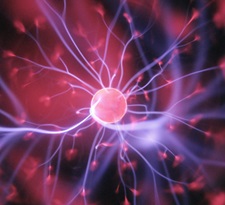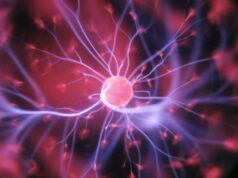 Researchers have found that electroconvulsive therapy (ECT)—whereby an electric current is passed through the brain of a patient under general anaesthesia to induce a brief seizure—can reduce the severity of mental illnesses.
Researchers have found that electroconvulsive therapy (ECT)—whereby an electric current is passed through the brain of a patient under general anaesthesia to induce a brief seizure—can reduce the severity of mental illnesses.
A recent study, which was presented at the 32nd European Congress of Psychiatry (6–9 April, Budapest, Hungary), saw the use of ECT across Scotland assessed over an 11-year period—from 2009 to 2019—using data from the Scottish ECT Audit Network (SEAN). This Scotland-wide naturalistic study assessed the efficacy of, and side-effects associated with, ECT across a range of common mental illnesses, such as depression, bipolar depression, schizophrenia, and mania.
In the study, ECT was shown to be effective in reducing illness severity, as measured by the Clinical Global Impression Scale (CGI-S)—a validated, clinician-administered assessment tool that measures illness severity. Some 2,920 ECT episodes had CGI-S scores recorded for patients before and after treatment. The mean CGI-S score prior to treatment indicated a ‘marked’ illness severity of 5.03 (95% confidence interval [CI], 4.99–5.07), whilst, after treatment, the mean CGI-S score was reduced to 2.07 (95% CI, 2.03–2.11), indicating a reduction to ‘borderline’ illness severity.
Assessing the side-effects associated with ECT, the study found that anaesthetic complications and prolonged seizures were rare, occurring in <1% of treatment episodes. Cardiovascular complications were reported in 2.2%, nausea in 7.2% and muscle aches in 12%. In addition, confusion was reported in 19% and cognitive side-effects in 26.2%.
“Our findings from this large, naturalistic study across Scotland from over an 11-year period reinforce the widely held but nonetheless underexplored view that ECT is both a safe and effective treatment when delivered to appropriate groups of people with severe mental illness,” said Julie Langan Martin (University of Glasgow, Glasgow, UK). “Monitoring of side-effects, especially cognitive side-effects, should be undertaken carefully and rigorously in all patients receiving ECT.”
“This study on ECT presents compelling evidence of its effectiveness in reducing the severity of mental illnesses, with major side-effects found to be rare,” added Julian Beezhold (Norfolk and Suffolk NHS Foundation Trust, Norwich, UK), secretary general of the European Psychiatric Association (EPA). “It challenges common misconceptions and stigmas associated with ECT, providing valuable insights that can reshape public perceptions and stimulate informed discussions among healthcare professionals.”









